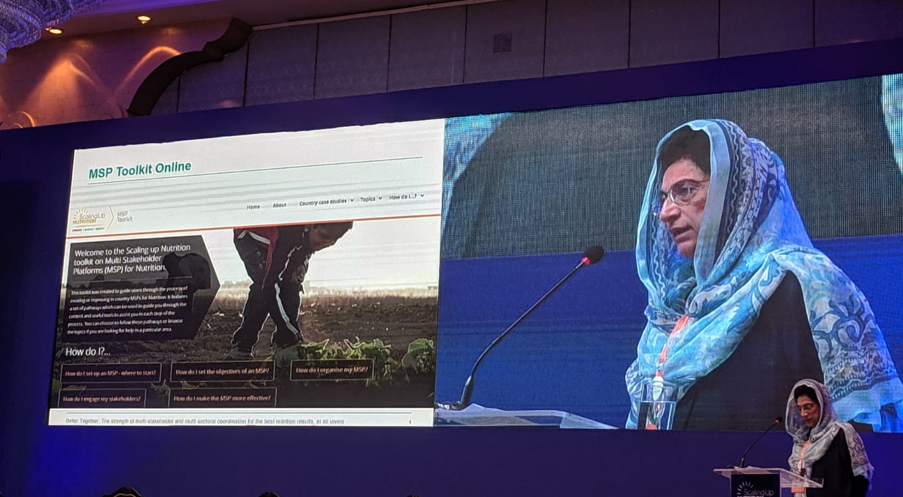Field Story
Ten must see global nutrition stories from 2023
December 18, 2023
Better Together: Multi-stakeholder platforms to support nutrition advocacy, planning and coordination
Workshop 13 at the SUN Global Gathering, entitled "Better Together," held on Wednesday, November 6th 2019, explored the reforms being undertaken by SUN countries with respect to their governance arrangements to fit the purpose and demands of effective multi-sectoral programming for nutrition.
Posted on February 27, 2020


Kathmandu, NEPAL — Workshop 13 at the SUN Global Gathering, entitled “Better Together,” held on Wednesday, November 6th 2019, explored the reforms being undertaken by SUN countries with respect to their governance arrangements to fit the purpose and demands of effective multi-sectoral programming for nutrition.
SUN countries have recognized the critical importance of functional, coordinated and accountable Multi-Stakeholder/Multi-Sectoral Platforms (MSP) as the right mechanisms to accelerate progress. These MSPs convene diverse actors to set priorities, and to plan and implement nutrition actions at national and sub-national levels. Well-constituted and functional MSPs are better placed to galvanize political momentum and mobilize financing for implementation.
Nutrition International’s Country Director for Pakistan, Dr. Shabina Raza, moderated the workshop which attracted participation of representatives of the Governments of Benin and Somalia as well Civil Society Networks Chairs from Bangladesh and Somalia. The participants presented and shared their experiences with MSPs, the challenges faced and possible solutions. The workshop was held in the plenary hall and was highly attended, demonstrating a high level of interest in the topic. Following the presentations, the audience joined the conversation, and shared their own countries’ experiences.
Key takeaways from the session included:
It was also announced that a Toolkit for Multi-stakeholder Platforms will be publicly accessible in early 2020. The toolkit was developed by the SUN Movement with support from Nutrition International (NI) under the TAN project, funded with UK aid from the UK government. A link to the toolkit will be shared in a later NI TAN update.